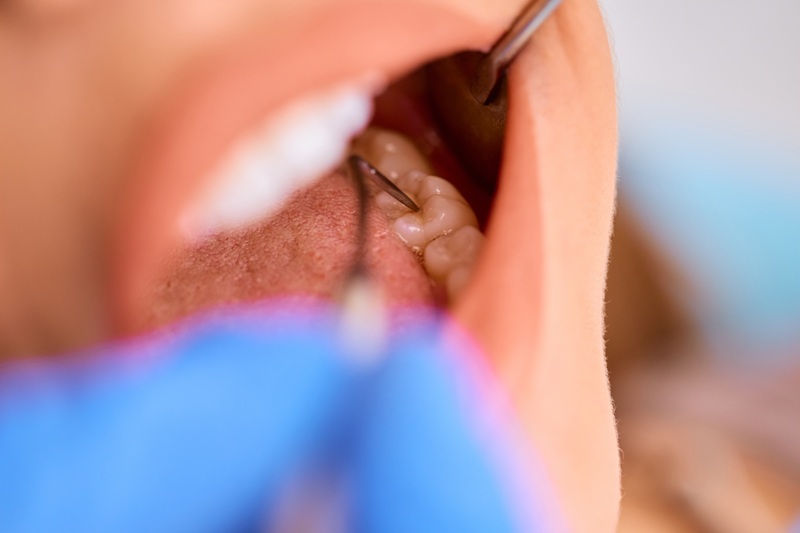Have you noticed a small, swollen bump or blister on your gums that feels tender or even painful while you’re brushing your teeth? Have you had one of those before but disregarded it as it simply “goes away by itself”?
Well, you shouldn’t take it lightly.
It might be something called a gum boil—a common yet often misunderstood dental issue. While it may seem harmless at first, a gum boil could be a sign of an underlying infection that needs attention.
In this blog, we’ll go into what causes them, and why you should never ignore them. With the right care, you can keep your smile healthy and prevent future complications.
What are Gum Boils in the First Place?
A gum boil, also known as a parulis, is a swollen bump or blister that appears on the gum. It often looks like a pimple and may be filled with pus.
Gum boils form as a result of infection—usually from bacteria that have made their way into the tissues of your gums or tooth root.
Sometimes, the boil may burst on its own and drain the pus, giving you temporary relief. However, this doesn’t mean the problem has gone away. The infection often remains and can come back, sometimes worse than before.
So if you’re wondering, “What are gum boils?”—the simple answer is: they’re a sign that your gums or teeth are fighting an infection.
Why Do Gum Boils Appear?
Gum boils usually develop as a result of a bacterial infection in the mouth. These infections can start in different ways, and understanding the gum boil causes can help you prevent them in the future.
1. Poor Oral Hygiene
Not brushing and flossing regularly can allow plaque and bacteria to build up along the gumline. Over time, this can lead to gum disease and abscesses, which may cause gum boils to form.
2. Untreated Cavities
If a cavity is left untreated, bacteria can spread to the inside of the tooth and infect the root. The infection can then travel to the gum and create a boil.
3. Gum Disease (Periodontitis)
In more advanced stages of gum disease, bacteria can form deep pockets between the teeth and gums. These pockets are perfect breeding grounds for infection, which may lead to pus buildup and gum boils.
According to the Australian Dental Association, regular dental checkups and cleanings are essential in preventing gum disease—one of the leading causes of gum boils.
4. Dental Trauma or Injury
An injury to the gums or teeth, such as biting down on something hard or dental work that didn’t heal properly, can allow bacteria to enter and trigger an infection.
5. Weakened Immune System
People with diabetes, cancer, or autoimmune diseases may be more prone to infections, including those that cause gum boils.
Signs and Symptoms to Watch Out For
You may be able to identify a gum boil simply by how it looks or feels. Here are common signs:
- A raised bump on the gums (usually near a tooth)
- Pain or tenderness in the area
- Redness or swelling
- Bad taste in your mouth (from draining pus)
- Loose teeth or tooth sensitivity
- Bad breath that doesn’t go away
If you notice any of these symptoms, it’s important to contact your dentist as soon as possible. A gum boil might seem small, but it can be a sign of a more serious infection.
Are Gum Boils Dangerous?
Gum boils themselves aren’t life-threatening, but the infection causing them can spread to other parts of the body if left untreated.
In some cases, a dental abscess can lead to swelling in the face, difficulty breathing, or fever—all of which require emergency care. That’s why it’s crucial to treat gum boils seriously and get professional care before the issue gets worse.
How Are Gum Boils Treated?
Treatment depends on what’s causing the gum boil. Your dentist will examine your mouth, possibly take an X-ray, and decide the best course of action. Here are some common treatments:
1. Dental Cleaning and Antibiotics
If the cause is gum disease, a deep cleaning may be recommended, along with antibiotics to fight the infection.
2. Root Canal Therapy
If the infection is inside the tooth, a root canal may be needed to clean out the infected pulp and save the tooth.
3. Tooth Extraction
In more severe cases where the tooth is too damaged to save, it may need to be removed to stop the infection from spreading.
4. Gum Surgery
For chronic gum infections or large boils, minor surgery may be required to drain the abscess and remove infected tissue.
How to Prevent Gum Boils from Coming Back
Prevention is key when it comes to gum health. Here are simple but effective steps you can take:
- Brush your teeth twice a day with fluoride toothpaste
- Floss daily to remove plaque between your teeth
- Avoid sugary and acidic foods that can cause cavities
- Visit your dentist regularly for checkups and cleanings
Treat cavities and gum issues early before they get worse
Following these steps can greatly reduce your chances of developing gum disease and the infections that lead to gum boils.
When to See a Dentist
If you’re dealing with a sore or swollen bump on your gum, don’t wait for it to go away on its own. The sooner you see your dentist, the easier it will be to treat the infection and save your tooth.
Even if the boil pops or the pain goes away, that doesn’t mean the problem is fixed. Bacteria can continue to spread and damage nearby tissues if left untreated.
The Bottomline
A gum boil may look like a small issue, but it’s often your body’s way of warning you that something deeper is wrong.
Whether it’s due to poor oral hygiene, untreated cavities, or advanced gum disease, ignoring the symptoms can lead to more serious problems down the road.
Are you Concerned About Your Gums?
If you’re feeling the start of a boil on your gums or experiencing discomfort in your mouth, don’t wait for it to get worse. At Bellevue Hill Dental, we’re committed to assessing your needs and understanding your situation completely — providing the treatment you need for lasting relief.Book your appointment today and take that step towards a healthier, pain-free smile.



